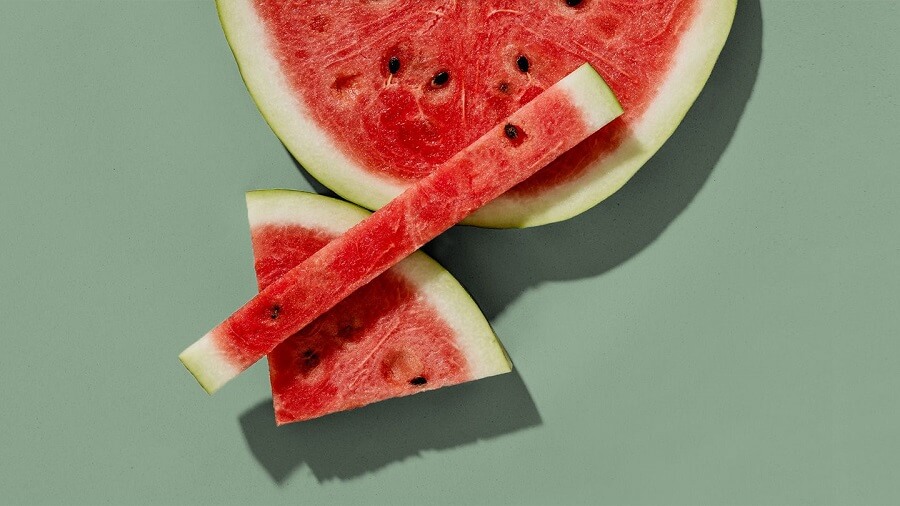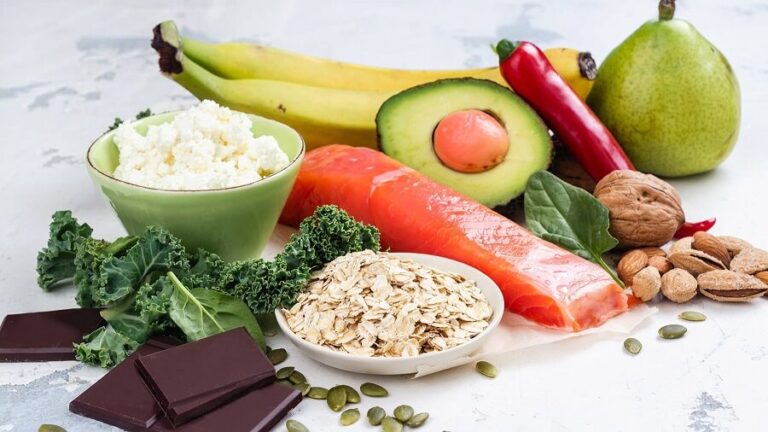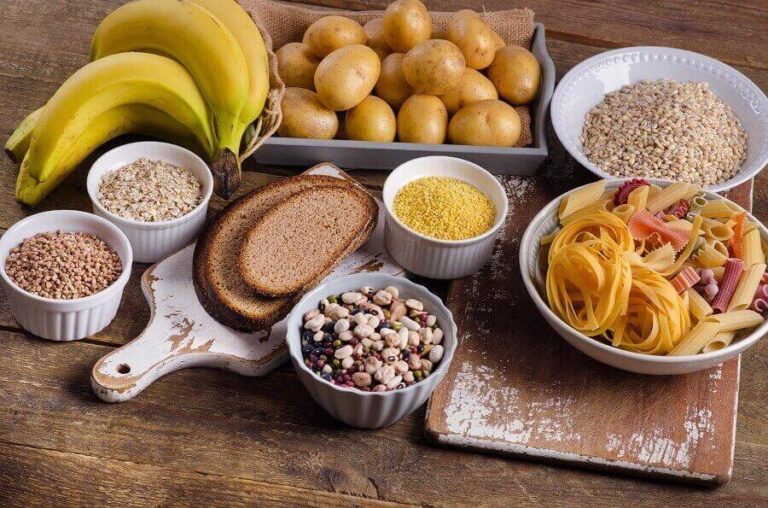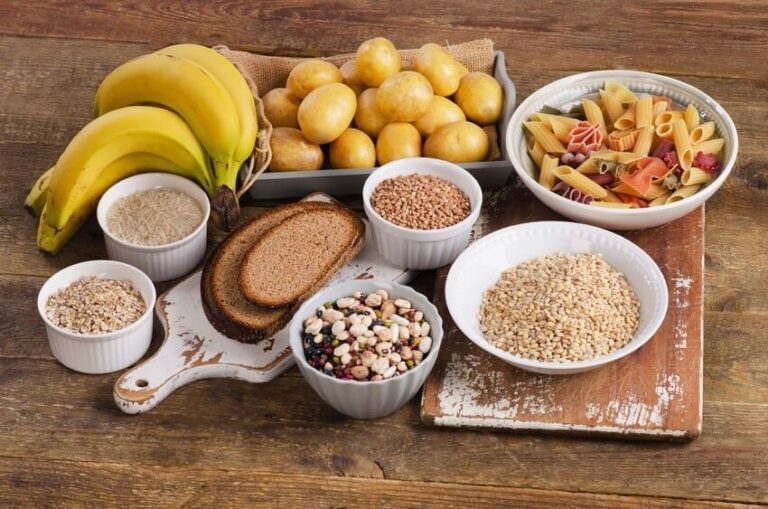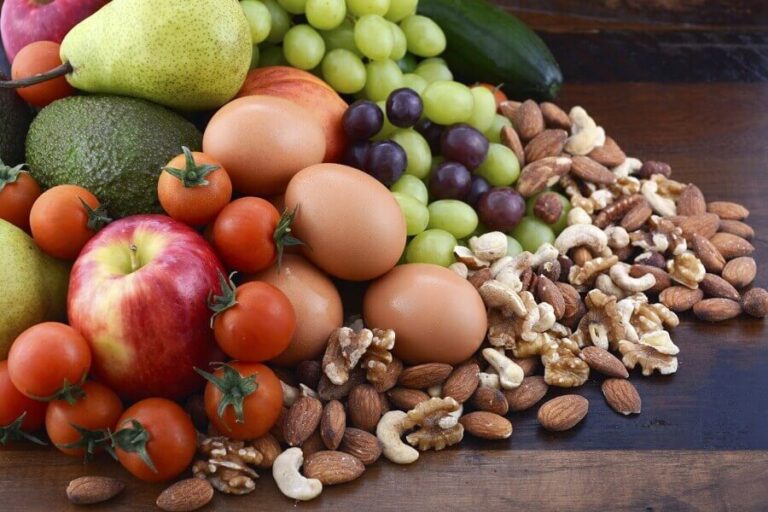Watermelon is an exceptionally healthy fruit. It is full of nutrient water, contains very few calories, and is refreshing.
In addition, watermelon pulp is a good source of plant compounds with antioxidant properties, like citrulline and lycopene.
This juicy fruit can have several health benefits, such as lower blood pressure, increased insulin sensitivity, and reduced muscle pain.
Read on to find out what its nutritional value is, what calories, vitamins, and minerals it has, and the benefits of eating watermelon for your body.
Watermelon: What is it?
Watermelon (Citrullus latitudes) is a berry from the pumpkin family. Evidence for the existence of watermelons has been known since the 20th century BC in Ancient Egypt. Watermelon seeds were placed in the tombs of the pharaohs as a source of food in the afterlife.
Today, more than a thousand different watermelons are grown, many of which can mature in less than 100 days. According to data from 2017, 67% of the world’s watermelon production comes from China. Iran, Turkey, and Brazil follow in their output.
Watermelon is generally consumed raw, although nowadays, it is also used to make desserts, such as jam, ice cream, smoothies, and even watermelon gazpacho.
Read more:
What nutrients does it contain?
Watermelon has high water content and represents more than 91% of the weight. It is low in calories, only 30 Kcal per serving, and this energy comes mainly from carbohydrates.
Watermelon does not provide significant amounts of protein or fat. As for vitamins, the leading nutrient is vitamin C, 100 grams of watermelon cover 10% of what you need per day.
In addition, watermelon contains citrulline and the powerful natural antioxidant lycopene (also rich in tomatoes). All of these compounds are antioxidants and are associated with various health benefits.
Nutritional value of watermelon in 100 grams:
- Calories – 31 kcal
- Proteins – 0.7 g
- Fat – 0.2 g
- Carbohydrates – 7.7 g
- Of which fiber – 0.4 g
- Of which sugars – 6.3 g
A cup of watermelon also has many other nutrients, including these vitamins and minerals:
Vitamin C: 21% of the amount needed per day
Vitamin A: 18% of the amount required per day
Potassium: 5% of the amount needed per day
Magnesium: 4% of the amount needed per day
Vitamins B1, B5, and B6: 3 % of the amount needed per day. Watermelon is also high in carotenoids, including beta-carotene and lycopene. In addition, it has citrulline, an essential amino acid for the body.
Benefits for the body
Watermelon is the richest source known so far of the amino acid citrulline. Most of it is found in the white rind that surrounds the pulp.
In your body, citrulline is transformed into the essential amino acid arginine.
Both substances are necessary for the production of nitric oxide (NO), which plays a vital role in the functioning of the cardiovascular system and in maintaining healthy blood pressure. (2)
Arginine is also essential for many organs, such as the lungs, kidneys, liver, and immune system and has been shown to facilitate wound healing.
Also, some studies claim that watermelon juice and arginine intake could improve insulin resistance. (4)
Nitric oxide is of particular importance to athletes. This compound is essential for muscle recovery after exercise and has a positive effect on the transport of oxygen from the blood to the muscles.
In summary, the benefits of watermelon are:
- Lower blood pressure
- Prevent insulin resistance
- Less muscle pain
- It May help reduce inflammation
- Hydration
Contraindications and effects on the body
Watermelon is considered a safe fruit for most people. However, some people may experience some side effects from eating them.
Due to the high fructose content, watermelon can cause an allergic reaction in people who cannot digest it or are allergic. This causes symptoms such as upset stomach, bloating, and diarrhea.
Another contraindication of watermelon is for those allergic to gluten. This can lead to symptoms such as itchy throat, swollen lips, and skin rashes. Eating this fruit is also not recommended if you have irritable bowel syndrome.
Can I eat watermelon if I am diabetic?
For one thing, watermelon has a relatively high glycemic index – 72-80 units. On the other hand, the modest carbohydrate content per 100g provides a low glycemic load of just three units.
So consuming a small amount of watermelon is acceptable even for people with diabetes. However, for diabetics, eating large amounts of watermelon is contraindicated because this could excessively increase blood sugar levels.
Related: Banana – Calories, Carbohydrates, and Other Properties
Does watermelon affect the kidneys?
One of the popular myths about watermelon is that it can positively affect liver and kidney problems and, in particular, help against stones. The rationale is that watermelon has diuretic and laxative properties due to its high water and citrulline content.
Although there is some logic in this statement; citrulline helps remove ammonia from the body, which could help destroy kidney stones; there is no direct scientific evidence of the benefits of watermelon for treating kidney diseases such as urolithiasis.
ABSTRACT
Watermelon is a delicious berry fruit with excellent properties and health benefits.
It is high in water which helps hydrate, and also contains the amino acid citrulline, an essential nutrient for the cardiovascular and muscular system.
Additionally, watermelon is low in calories, vitamin C, and other antioxidant nutrients that can help keep you healthy.

